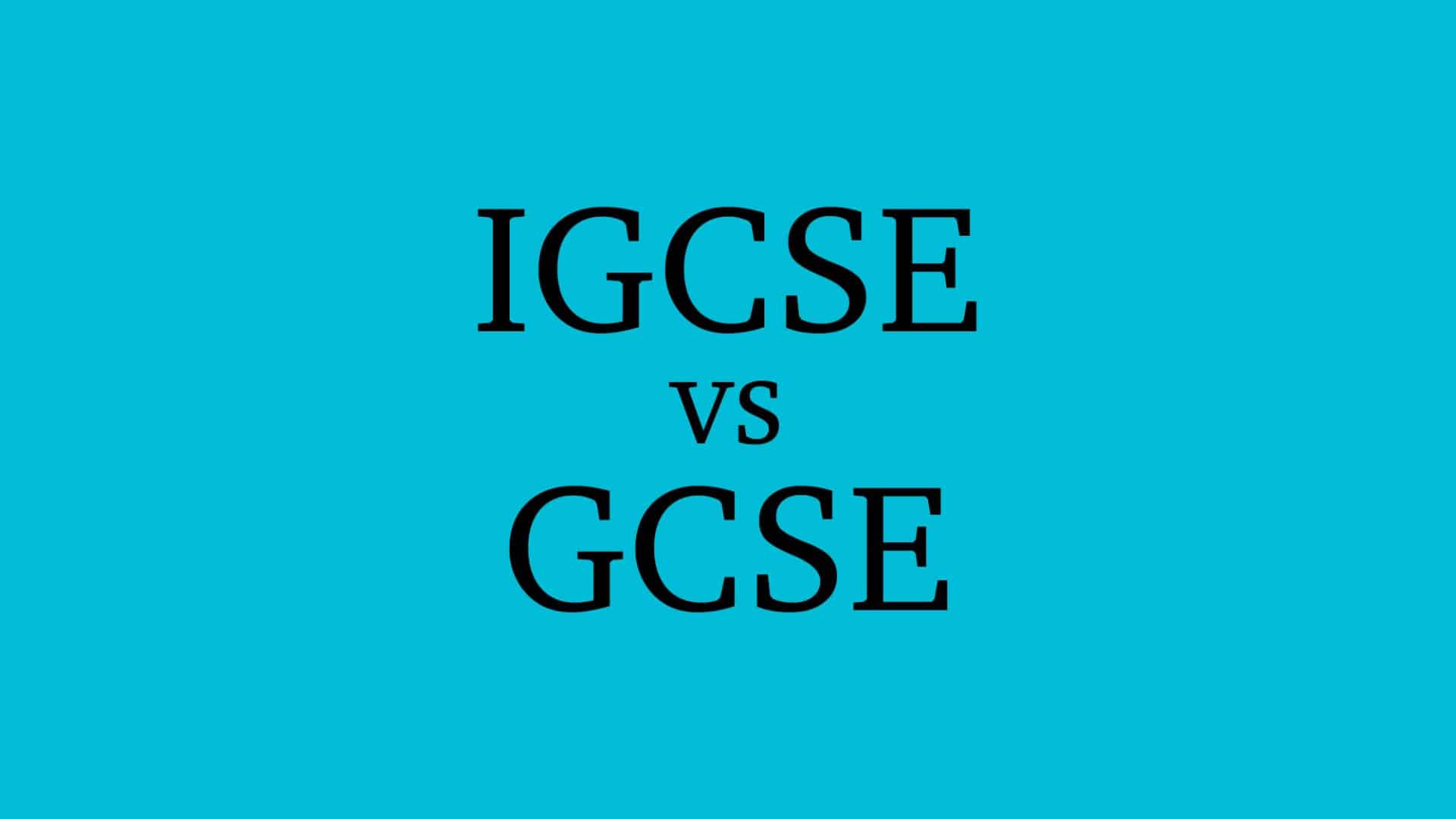When exploring education options, understanding what are GCSEs and how they differ from IGCSEs is crucial. Both qualifications prepare students for further education, but each has unique features. In this blog, we’ll dive into the differences between GCSE vs IGCSE to help you make an informed decision.
What Are GCSEs ?
GCSE stands for General Certificate of Secondary Education. These exams are typically taken by students aged 14-16 in the UK. GCSEs are the standard qualification for secondary education and cover a wide range of subjects, from Maths and Science to the Arts and Humanities.
Why is GCSE important?
GCSEs are very important for students in the UK. They mark a key step in secondary education. Good GCSE results are often needed for further study, like A-levels or vocational courses. Many schools and colleges require specific GCSE grades for admission.
GCSEs help build essential skills. They improve thinking and communication abilities. Employers often look for candidates with strong GCSE results. High grades can lead to better job opportunities and career paths.
In short, GCSEs are crucial for future success. They help students move smoothly into higher education or the workforce. Knowing their importance encourages students to focus on their studies.
“Our 1-on-1 GCSE Tutors can help you stay on track and build confidence.”
GCSE subjects
GCSEs include many subjects, letting students choose what interests them. Here are some common GCSE subjects:
- English
- Mathematics
- Biology
- Chemistry
- History
- Computer Science
- Geography
- Sociology
- Art and Design
- Astronomy
- Film Studies
- Buisness
- Economics
- Psychology
- Design and Technology
- Engineering
- Religious Studies
- Citizenship
- Foreign Language
GCSE Boards
1. AQA
3. OCR
4. WJEC
5. CIE
What Are IGCSEs?
IGCSEs (International General Certificate of Secondary Education) are globally recognized qualifications for students aged 14-16. They cover various subjects and prepare students for further education or career opportunities.
Why is iGCSE important?
The IGCSE (International General Certificate of Secondary Education) is important because it prepares students for higher studies and careers. It builds strong knowledge and practical skills. IGCSE is recognized worldwide, helping students study or work anywhere. It offers many subjects to choose from, making learning flexible and personal.
The program teaches problem-solving, critical thinking, and global awareness, which are useful for success in life. Students gain confidence and a solid academic foundation for further education, such as A-Levels or the IB Diploma. It also helps develop essential skills for future opportunities in education or work.
IGCSE subjects
- Mathematics
- English Language
- English Literature
- Biology
- Chemistry
- Physics
- Economics
- Business Studies
- Accounting
- Geography
- History
- Computer Science
- Information and Communication Technology (ICT)
- Art and Design
- Music
- Drama
- Physical Education
- French
- Spanish
- German
- Arabic
- Environmental Management
- Global Perspectives
- Sociology
- Psychology
This list includes common IGCSE subjects, though availability may vary by school or country.
IGCSE Boards
- Cambridge Assessment International Education (CAIE)
- Edexcel International GCSE (Pearson)
- OxfordAQA International GCSE
- Cambridge International Examinations (CIE)
These are the primary boards offering IGCSE qualifications globally. Availability may vary by region.
GCSE Vs IGCSE
| Heading | GCSE (General Certificate of Secondary Education) | IGCSE (International General Certificate of Secondary Education) |
|---|---|---|
| Curriculum Differences | The curriculum is based on the UK education system and covers UK-specific topics. | The curriculum is more global and can be adapted to different countries. |
| Flexibility in Subjects | Focuses on core subjects like Maths, Science, and English, with fewer subject choices. | Offers more subjects, including global studies and foreign languages. |
| Coursework and Exams | Includes both coursework and final exams for grading. | Mostly based on final exams with little or no coursework. |
| Grading Systems | Uses a 9-1 scale (9 is the highest) for grading. | Uses both the 9-1 scale or A*-G grades, depending on the exam board. |
| Global Recognition | Mainly recognized in the UK but also respected in some other countries. | Recognized and accepted worldwide by schools, universities, and employers. |
| Language Requirements | Requires students to take English as a first language. | Allows students to take English as a second language, which helps non-native speakers. |
| Teaching Methods | More teacher-led with guidance through the curriculum. | Encourages independent learning, where students manage their own studies. |
| Which is Harder? | Seen as easier for UK students because it focuses on UK content. | Can be harder due to global topics and the focus on exams instead of coursework. |
| University Admissions | Easily accepted by UK universities and employers. | Accepted worldwide, making it a good option for students who want to study abroad. |
| Cost Differences | Free for most students in UK state schools. | Usually requires payment since it is mostly offered in private or international schools. |
| Availability of Resources | Plenty of study resources, textbooks, and online help available in the UK. | Fewer resources, but international students can still find textbooks and online help. |
| Future Prospects | Good for students aiming to stay in the UK for further study or jobs. | Better for students who want to study or work outside the UK. |
| Personal Preferences | Best for students who prefer teacher help and a mix of exams and coursework. | Suits students who prefer to study on their own and focus on exams rather than coursework. |
Choose Tutorhelpme GCSE Tutors
- Expert GCSE Support
Our tutors specialize in GCSE subjects, helping students understand difficult topics with ease. - Tailored Learning Plans
We create personalized study plans based on each student’s strengths and weaknesses. - Focused Exam Preparation
We provide exam strategies and practice papers to help students feel ready and confident for their GCSEs. - Flexible Online Sessions
Learn at your own pace with online tutoring sessions that fit around your schedule. - Affordable Prices
Get high-quality tutoring at prices that won’t break the bank. - Engaging and Simple Lessons
Our tutors make learning fun and easy, keeping students motivated throughout their studies. - Trusted by Parents and Students
We’ve helped many students improve their grades and reach their full potential in GCSE exams. - Free Assessment
Book a free assessment today and start your GCSE journey with us!
Read More Benefits of tutoring: How can tutoring help students?

